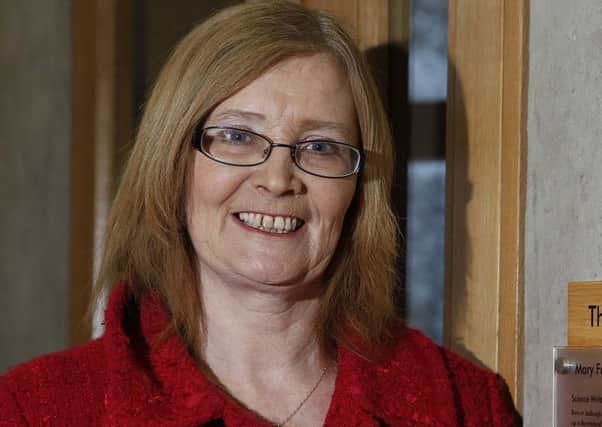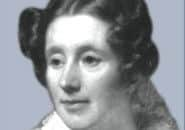Burntisland's Mary on new note after competition confusion


Despite a last-minute flood of votes for engineer Thomas Telford, RBS has confirmed Burntisland astronomer Mary Somerville has been nominated the public’s favourite ‘genius’ to grace its new £10 polymer note.
The result was not always clear cut, however.
Mary was comfortably ahead in the week-long campaign on Facebook. In fact, such was her popularity, Somerville’s two competitors – Telford and physicist James Clerk Maxwell – were trailing by almost 10 to one.
Advertisement
Hide AdAdvertisement
Hide Ad

However, on Sunday, just hours before the midnight deadline, Telford’s votes quickly climbed from 500 to 5100; a flurry which raised sceptical eyebrows, including those belonging to the Presiding Officer of the Scottish Parliament, Tricia Marwick.
The Mid-Fife MSP said: “The number of votes didn’t change at all over about 24 hours which I thought was peculiar as I know folk were voting for Somerville.
“Then about 6 pm on Sunday I went into the site again and Telford had overtaken both by a country mile.
“Simply not possible.


“I complained to RBS on Sunday evening, before the voting closed, that there were unusual patterns of voting. They agreed to investigate.”
Advertisement
Hide AdAdvertisement
Hide AdTelford overtook Somerville’s count of 4300 and it emerged a huge influx of votes were linked to Facebook accounts in countries such as Iraq, India and Vietnam.
After an investigation, RBS announced Mary as the winner yesterday (Wednesday).
Malcolm Buchanan, chairman of RBS’s Scotland board, said:“Any of our final nominees would have been worthy winners and we wanted to make sure that our choice properly reflected the wishes of those who took part.
“Mary Somerville’s immense contribution to science and her determination to succeed against all the odds clearly resonate as much today as they did during her lifetime.”
Advertisement
Hide AdAdvertisement
Hide AdMary Somerville - who was largely self-educated - discovered the planet Neptune.
Oxford’s Somerville College is named in her honour as is the Somerville Crater on the moon but there has been little formal recognition in her homeland.
Mrs Marwick, who succeeded in having a committee room at Parliament named after Somerville, described her as “a truly remarkable woman scientist, astronomer, a campaigner for women’s votes and education.”
Ian Archibald, convenor of Burntisland Heritage Trust said: “The people of Burntisland will, I have no doubt, be pleased and delighted to see Mary Somerville get the prominence and recognition she deserves.”